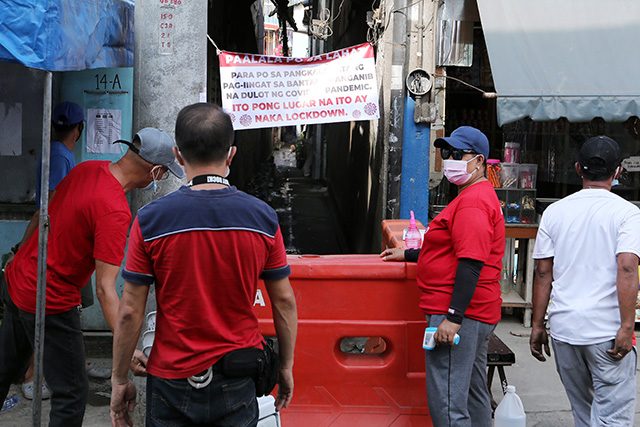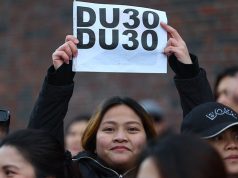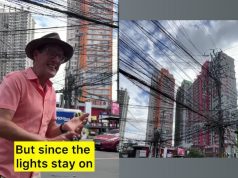The national government referenced “bubble” instead of a “lockdown” to describe the reinforced restrictions to help curb the worsening pandemic in the country.
The Metro Manila Development Authority explained that workers and travelers will be restricted around the “bubble” of Mega Manila (the National Capital Region and adjacent provinces Bulacan, Cavite, Laguna, and Rizal) under general community quarantine.
In an interview on Sunday, March 21, MMDA Chair Benhur Abalos Jr. further pointed out that the “checkpoints” will be along the boundaries of the provinces, rather than around Metro Manila alone.
Presidential spokesperson Harry Roque refused to use the label “lockdown,” citing that the economy is still open.
“Hindi po iyan hard lockdown kasi bukas ang ekonomiya. But it is a restriction on movement kasi ang iniiwasan nga po natin na kumalat pa sa labas iyong mga new variants na nasa Metro Manila na at mga karatig na probinsiya,” Roque said.
A ‘travel bubble’ is for contained places
The government might have overlooked that a travel bubble only applies to destinations where COVID-19 transmissions have been successfully contained.
A Washington Post report defines a bubble or travel bubble as “a partnership between two or more places with similar rates of COVID-19 that allows for quarantine-free leisure travel in both directions.”
Per Block, an Oxford University researcher, also explained that only their borders are open to one another and still keep theirs closed from other countries, similar to a “bubble.”
“In a ‘travel bubble’ a set of countries agree to open their borders to each other, but keep borders to all other countries closed. So people can move freely within the bubble, but cannot enter from the outside. The idea is to allow people additional freedom without causing additional harm,” said the researcher as quoted in a report by Smithsonian Magazine.
The first known partnership in talks was between Australia and New Zealand, both countries that managed to achieve low transmission rates in September 2020.
In the Philippines, the new resolution the Inter-Agency Task Force for the Management of Emerging Infectious Diseases (IATF-EID) indicated additional measures for GCQ:
- Places of recreation (such as game arcades, libraries, archives, museums), tourist attractions and traditional cinemas and other closed-door establishments are temporarily suspended;
- Open-air tourist attractions are allowed;
- Meetings, incentives, conferences, and exhibitions (MICE) events shall be limited to essential business gatherings at 30% venue capacity;
- Religious gatherings shall observe a maximum of 30% of the venue capacity upon the discretion of local government units;
- Venue capacity of dine-in restaurants, cafes, personal care services shall be reduced to a maximum of 50% of capacity;
- Government agencies are also discouraged from conducting activities that would entail on-site mass gatherings; and
- Cockfighting and cockpit operations are suspended, including in areas under Modified General Community Quarantine.
It’s a lockdown 2.0
Critics argued that what IATF had reinforced is a reiteration of the quarantine or lockdown measures implemented last year.
Bubble = GCQ + additional restrictions
Duh.
— Raquel Fortun (@Doc4Dead) March 21, 2021
So basically ito na yung level of community quarantine natin:
Extreme ECQ
ECQ
MECQ
Soft MECQ
Hard GCQ
GCQ
MGCQThis is on top of granular lockdowns, special concern lockdowns, surgical lockdowns and whatever euphemisms they come up with.
— 𝙆𝙀𝙇 (@kelanocyte) March 19, 2021
The terms “NCR Plus,” “NCR Pro,” “Hard GCQ” and other related terms also trended on Twitter Philippines as Filipinos poked fun of the confusing measures.
IATF be like:
NCR Plus
NCR SE
NCR S
NCR S Plus
NCR Max
NCR Pro
NCR Pro MaxComplete model of NCR 😂
— Bryan Lim Madrid Corpuz 🇵🇭 (@bryancorpuz21) March 22, 2021
Some Reddit users also joined in and shared memes to air their sentiments.
Title from Philippines
Some users also percieved that the government might no longer willing to provide financial support or “ayuda” to the public anymore.
“Because declaring an ECQ would mean they will have to give financial support or “ayuda”. Pero Hard GCQ / Soft MECQ wouldn’t,” one user said.
Others also stressed that similar to what happened before, a lockdown is anti-poor.
“The rise in numbers aren’t just bc people are dining in or traveling; maraming cases kasi ang dami nang employers na nagpapapasok and because of the nature of their work, i.e. daily wage earners,” one user wrote.










